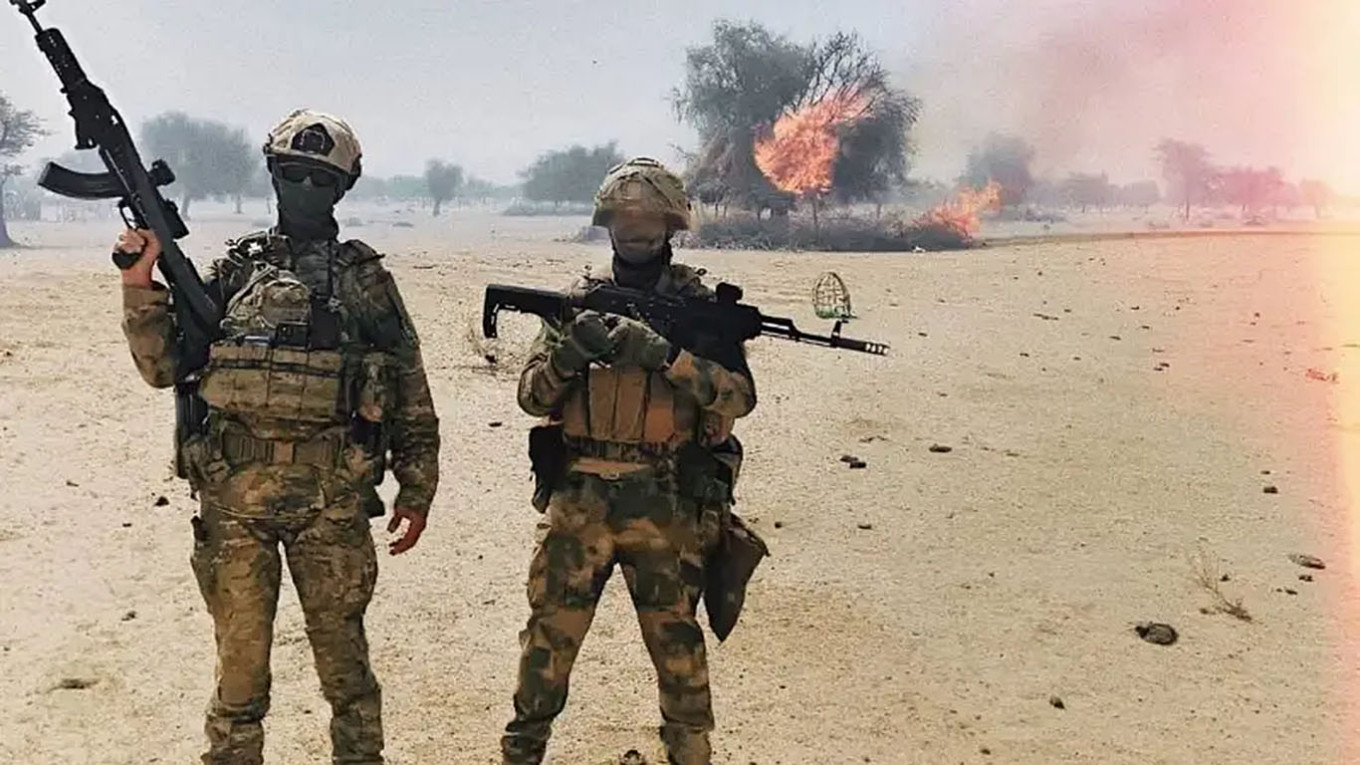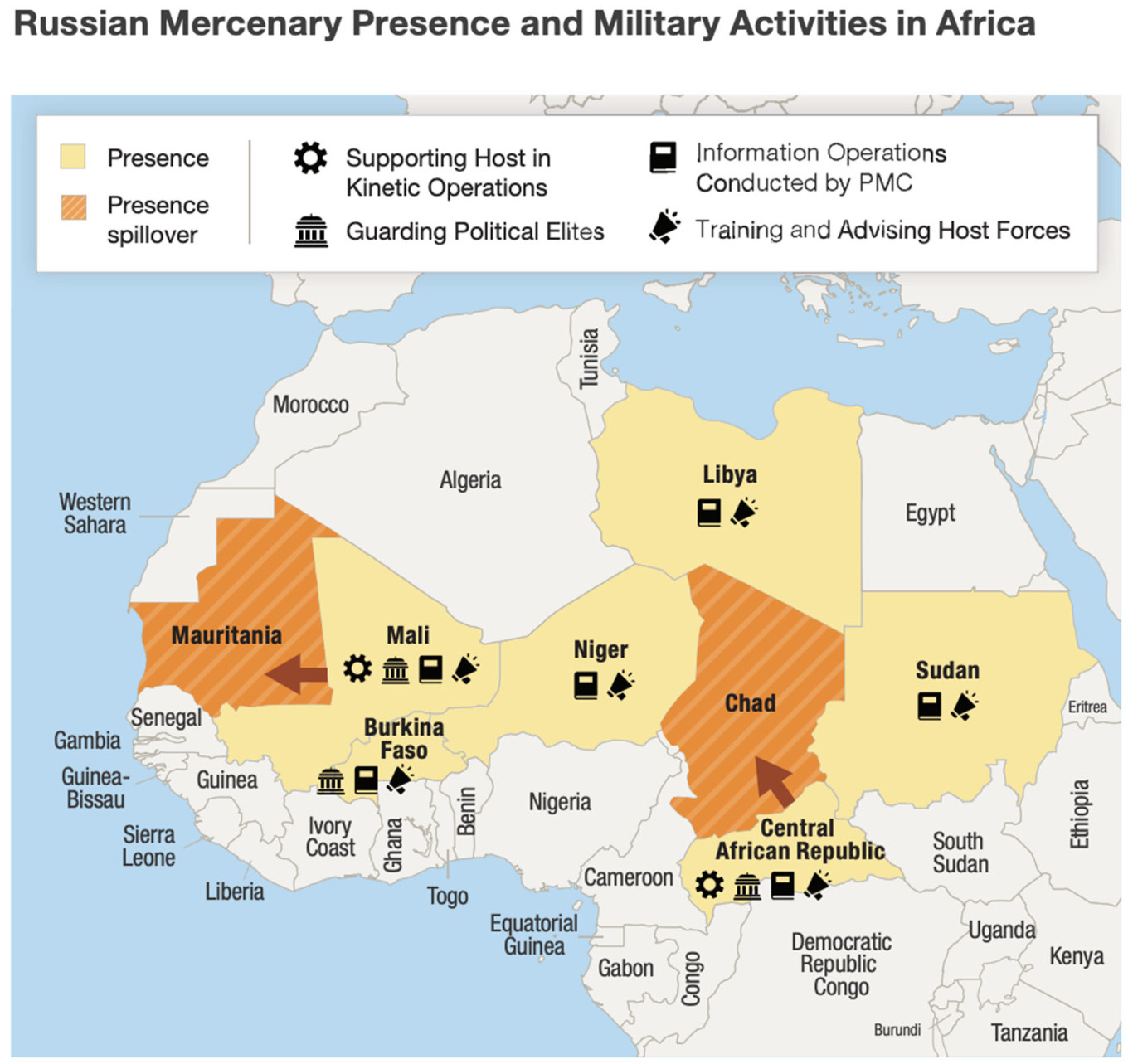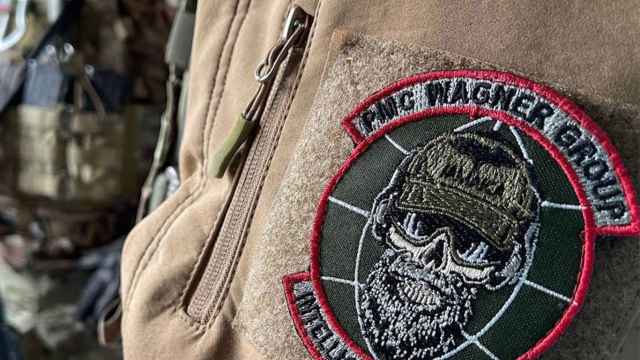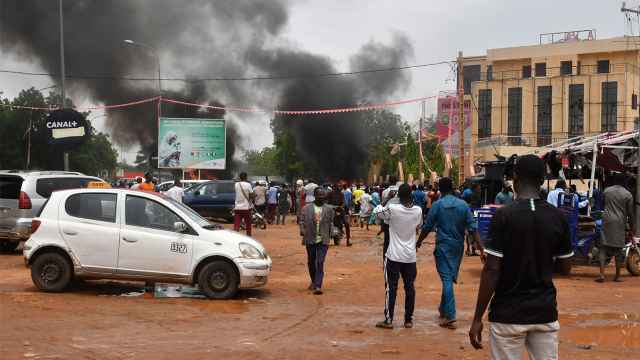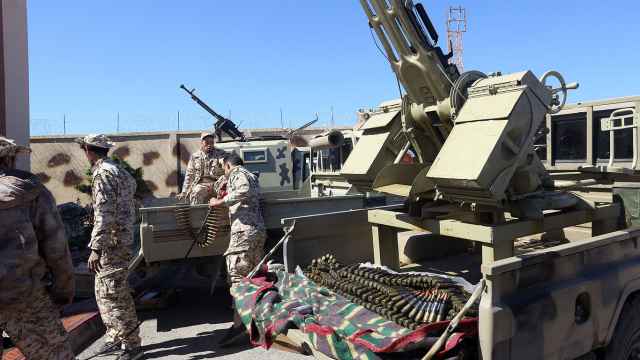The June 6 announcement by the infamous Wagner Group private military company that it will end its three-and-a-half-year-long deployment in Mali is an important development in Russia’s evolving mercenary landscape. Even as one Russian mercenary group is leaving, the country’s presence in Africa is not going anywhere.
The Kremlin seized control of Wagner’s operations, most notably in Africa, following the dramatic events of 2023. After its short-lived rebellion against Russian President Vladimir Putin, whose Kremlin was probably responsible for Yevgeny Prigozhin's death in a private plane crash, something had to be done about the organization that remained.
Wagner was essentially restructured into a new entity called the Africa Corps. So, despite Wagner’s announced departure from Mali, it is unclear whether any Russian mercenaries will actually leave the country. There is a chance they will sign new contracts with the Africa Corps instead.
The Africa Corps sits under the direct control of the Russian Defense Ministry. This reduces the risk that the mercenaries might buck Moscow’s interests, but it also creates new vulnerabilities. Moscow is now directly and publicly responsible for the Africa Corps’ actions, including its human rights abuses, failures and destabilizing client countries. By bringing its functions inside the house, Russia has lost the plausible deniability that the Wagner Group gave it.
In a newly released report by RAND, we found that Russian mercenaries currently have a clear presence in six African countries, though not all client states have been transitioned to the Africa Corps. Most notably, the Wagner Group name continued to be used in Mali after 2023, despite some mercenaries having signed contracts with the Africa Corps. This enabled Russia to capitalize on the close ties Wagner established in the country while shielding Moscow’s reputation in the event of a crisis or the need to withdraw forces.
In the Central African Republic, Wagner forces have continued to operate in the country, though Moscow has replaced some of the leadership to gain greater control.
By contrast, Libya has transitioned wholly from Wagner to the Africa Corps. Niger and Burkina Faso signed their first contracts in 2024, in the post-Wagner period. In Sudan, the situation is more ambiguous. While there is reporting on Wagner and Africa Corps activity, their formal structure is unclear.
These military activities are primarily intended to keep current regimes in power in the face of insurgent or terrorist groups. They also train and advise local armed forces and, in some countries, accompany them on operations.
The results of these efforts are mixed.
The brutality of the mercenaries’ tactics and failures to improve security seem to reduce these countries’ stability. Not only has the number of deadly attacks conducted by Islamist groups increased, but Russian mercenaries have also contributed to the violence.
Excessive force and human rights abuses are a deliberate part of their strategy. Like Wagner before them, the Africa Corps personnel target and torture civilians in the name of quelling insurgencies.
But these counterterrorism operations produce escalating and indiscriminate violence instead. In the second half of 2024, Malian armed forces working alongside Russian mercenaries deliberately killed at least 32 civilians and burned over 100 homes in central and northern Mali. They also arbitrarily executed at least 10 people in January 2025, including women and a two-year-old child.
With Moscow now in direct control over these personnel, it becomes more challenging for the Kremlin to deny responsibility for their atrocities. An analysis I conducted for the RAND corporation found that disquiet over human rights abuses was one of the most prominent themes affecting public sentiment toward Russian mercenaries. It was an especially significant driver of negative sentiment in areas where these forces were present.
Direct ownership of the Africa Corps also reflects poorly on Moscow when its mercenaries are completely ineffectual. In contrast to Africa Corps’ claims, the security situation in its client countries has deteriorated since it replaced UN and West African forces. Fatalities linked to Islamist groups were at record highs across Mali, Niger, and Burkina Faso in the first half of 2024. For the first time in nearly a decade, attacks reached Bamako, the capital of Mali.
Even worse, some experts estimated that Malian forces and Russian mercenaries would be responsible for a greater number of civilian deaths than Islamist groups in 2024. Increasingly, civilians are more afraid of being killed by Russian mercenaries than by jihadist groups.
This has not gone unnoticed among Russia’s clients. Failed security operations like the July 2024 Tinzawaten attack led to the deaths of both Malian soldiers and Russian mercenaries. It is little surprise that Malian military officers want more disciplined partners than Russian mercenaries who cannot deliver on their promises.
The stability of the broader region is also at risk. At times, the mercenaries’ operations spill into neighboring countries such as Mauritania and Chad, violating their sovereignty and risking destabilization. Their business model is cyclical: rather than building the defense capacity of countries they operate in, Russian mercenaries create an insecure climate and then position themselves as indispensable.
Furthermore, Moscow’s continued prioritization of personnel for the war against Ukraine highlights the unreliability of Russian mercenaries for African countries. Just a few months after Africa Corps arrived in Burkina Faso, a portion of the forces were called back to Russia, leaving a gap in the security services they were contracted to provide.
African government officials often cite the presence of terrorist groups or violent insurgent threats as justification for bringing mercenaries from the Africa Corps or Wagner Group into their countries. But the violence, human rights abuses, instability and negative public sentiment associated with these mercenaries’ tactics demonstrate that their presence makes security problems worse, not better.
It is unclear as of now what ultimately led to Wagner’s announced departure from Mali. But what is clear is that taking the reins of these mercenary groups makes Moscow directly responsible for these failings and abuses, presenting potential vulnerabilities for the Russian government.
A Message from The Moscow Times:
Dear readers,
We are facing unprecedented challenges. Russia's Prosecutor General's Office has designated The Moscow Times as an "undesirable" organization, criminalizing our work and putting our staff at risk of prosecution. This follows our earlier unjust labeling as a "foreign agent."
These actions are direct attempts to silence independent journalism in Russia. The authorities claim our work "discredits the decisions of the Russian leadership." We see things differently: we strive to provide accurate, unbiased reporting on Russia.
We, the journalists of The Moscow Times, refuse to be silenced. But to continue our work, we need your help.
Your support, no matter how small, makes a world of difference. If you can, please support us monthly starting from just $2. It's quick to set up, and every contribution makes a significant impact.
By supporting The Moscow Times, you're defending open, independent journalism in the face of repression. Thank you for standing with us.
Remind me later.



